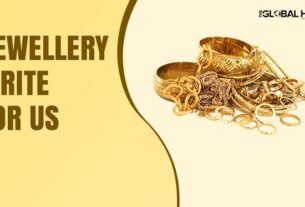In recent years, account-based marketing (ABM) has emerged as a robust strategy that focuses on aligning marketing and sales efforts precisely with your prospect’s business objectives.
Instead of casting a wide net to capture an array of leads, ABM zeroes in on high-value accounts that are most likely to generate revenue and foster long-term relationships. This targeted approach enables B2B brands to create more personalized and effective engagement with potential customers.
A survey found that 28% of the marketing budget in 2022 was dedicated to ABM, with 71% of companies planning to increase their ABM budget, emphasizing the growing importance and effectiveness of ABM strategies in the modern B2B landscape.
In this post, let’s learn about the transformative impact of ABM on B2B sales, exploring how it redefines the traditional sales process, fosters alignment between sales and marketing teams, and ultimately propels your business toward achieving its revenue goals.
How ABM Transforms B2B Sales
Many B2B brands find it challenging to express and showcase their value proposition in a way that clicks with the modern buyer. The old, one-size-fits-all approach to selling doesn’t cut it anymore.
It’s time to revamp your selling and go-to-market strategies from the very first engagement to the final demo. The core question to ask yourself now is: how can we connect with every prospect more effectively? The answer is simple: engage them on their terms.
That’s what ABM is all about.
An ABM framework significantly alters the landscape of B2B sales, steering it towards more targeted and personalized interactions. Here are some ways how.
1. Greater Marketing Return on Investment (ROI)
Companies employing ABM report a higher ROI, with the deal size being 2.3 times larger on average than deals closed from other strategies.
In terms of pure return on investment, 76% of B2B marketers say ABM yields a greater ROI than any other marketing strategy. Furthermore, according to recent statistics, the majority of companies employing ABM have sales cycles that are shorter than 90 days, while 86% of organizations say that ABM has helped improve their win rates.
ABM’s focused approach ensures that marketing and sales resources are invested in engagements with a higher likelihood of conversion and long-term value. By aligning marketing strategies with the business objectives of target accounts, ABM can significantly boost your ROI and foster fruitful business outcomes.
2. Improved Customer Engagement and Retention
ABM focuses on the creation of more relevant content that fosters better engagement with prospects and enhanced loyalty with existing customers.
In fact, 83% of marketers affirm that ABM increases engagement with target accounts, while 85% of marketers say ABM significantly benefited them in retaining and expanding their existing client relationships.
As a case in point, WP Engine, a WordPress hosting platform, showed that their ABM campaign led to engagement from 93% of accounts on their target list, a 59% increase in open rates, a 29% increase in reply rates, and a 28% increase in opportunities created, showcasing a notable improvement in customer engagement through ABM.
These numbers highlight the substantial impact of ABM in enhancing customer engagement and retention, which are crucial aspects for sustaining fruitful B2B business relationships.
3. Better Cross-Functional Alignment and Synergy
Marketing and sales collaboration is a cornerstone of successful ABM. At the same time, the converse is true as well — ABM facilitates greater alignment and collaboration between marketing and sales teams as their common objective is to create personalized content for decision-makers and get them to convert.
82% of respondents in a LinkedIn survey of more than 800 global B2B marketers said ABM greatly improves the alignment between marketing and sales at their company.
Put simply, ABM necessitates a cohesive effort from both marketing and sales from the get-go, unlike traditional models where a handoff occurs post-lead qualification, often resulting in miscommunication, conflict, and lower campaign performance.
4. Tailored Content That Builds Trust
Personalization lies at the heart of ABM. It’s what helps you establish trust and demonstrate a clear understanding of the target accounts’ needs.
And so, when B2B sales teams adopt ABM, it necessitates the creation of highly bespoke content that encourages prospects to engage further and positions your brand as an authoritative and reliable partner.
According to a Forrester report, 56% of marketers agree that personalized content is crucial for a successful ABM strategy. This underscores the importance of tailored content in engaging target accounts at a personal level, fostering a connection that traditional B2B tactics typically lack.
5. A More Efficient Tech Stack
Adopting the right technology stack enables you to scale your laser-focused ABM efforts and engage more prospects without compromising on quality.
According to a RollWorks survey report, budgets dedicated to new marketing technology increased moderately by 59% and significantly by 20%. This trend of investing in better tools (such as email marketing automation, lead prospecting, CRM, etc.) shows how ABM is an optimistic move forward for an organization’s marketing ROI.
The right technology stack can automate various aspects of B2B marketing — from smart audience segmentation and personalized content creation to tailored outreach and campaign performance optimization through insightful analytics — thus helping you ensure effective engagement with target accounts.
In terms of leads, the ABM-driven transformation means:
- Higher ROI: Optimized resource allocation towards high-value leads.
- Increased Engagement: Engaged leads are more likely to convert.
- Organizational Alignment: Ensures cohesive sales and marketing efforts that result in consistent messaging toward lead nurturing.
- Targeted Content: Addresses the specific needs of leads, improving response and win rates.
- Advanced ABM Technology: Automates lead engagement, ensuring timely and personalized interactions, thus potentially translating into higher conversion rates.
Overall, these facets of ABM collectively contribute to a more effective and efficient lead generation and management process, nurturing leads through the sales funnel to conversion.
Conclusion
Account-based marketing is slowly becoming a must-have strategy in the B2B domain, transforming the traditional sales process into a more targeted and personalized endeavor.
By focusing on high-value accounts, fostering sales and marketing synergy, and leveraging advanced technology, ABM propels B2B brands toward achieving better ROI, enhanced customer engagement, and ultimately, business growth.
As the ABM landscape continues to evolve, embracing this strategic approach and investing in the right technology stack is paramount for B2B companies aiming to thrive.
At xGrowth, we help B2B brands do just that through custom-made, structured ABM campaigns. Feel free to have a chat with us to learn exactly how we can take your marketing ROI to the next level.




